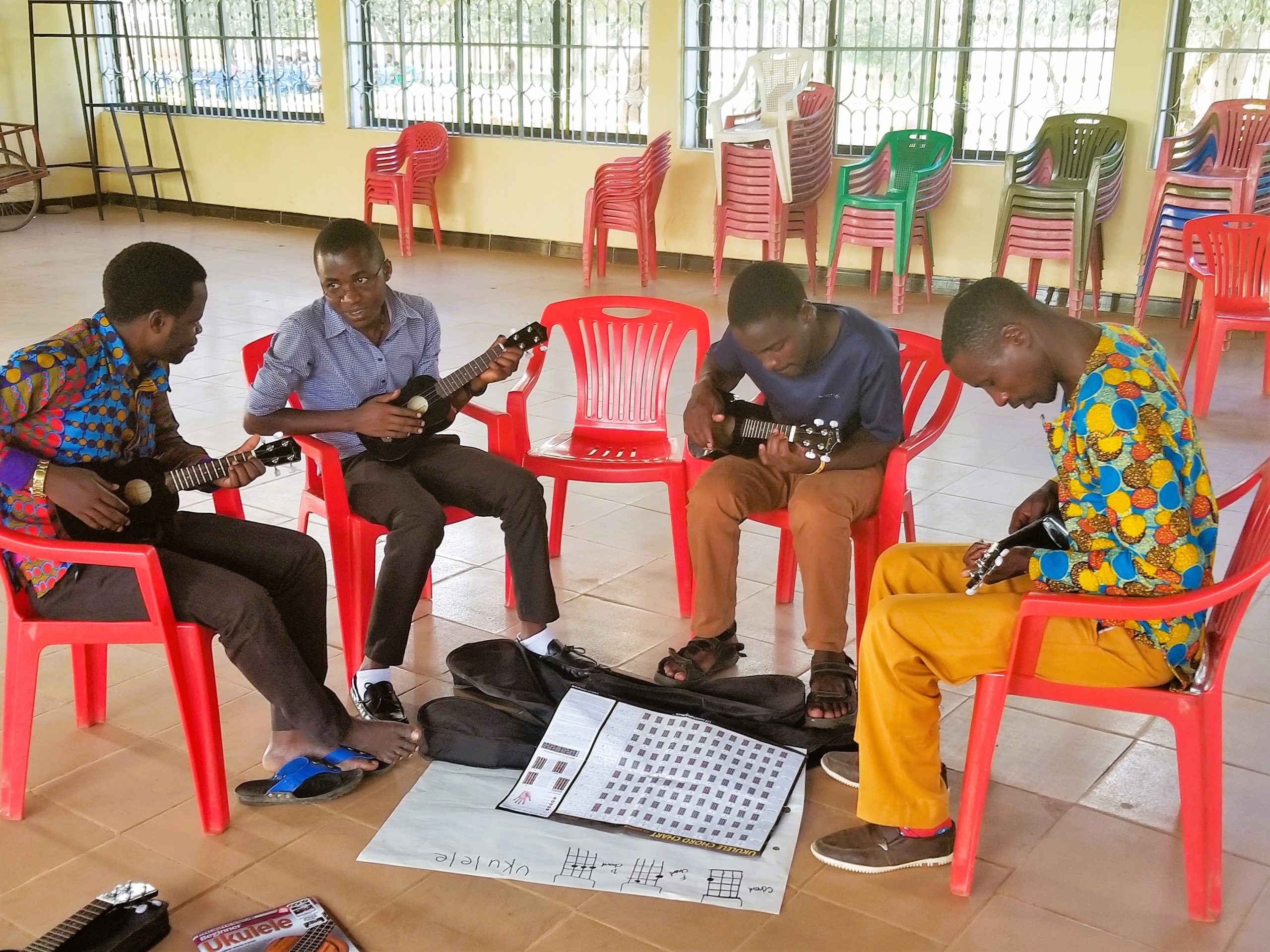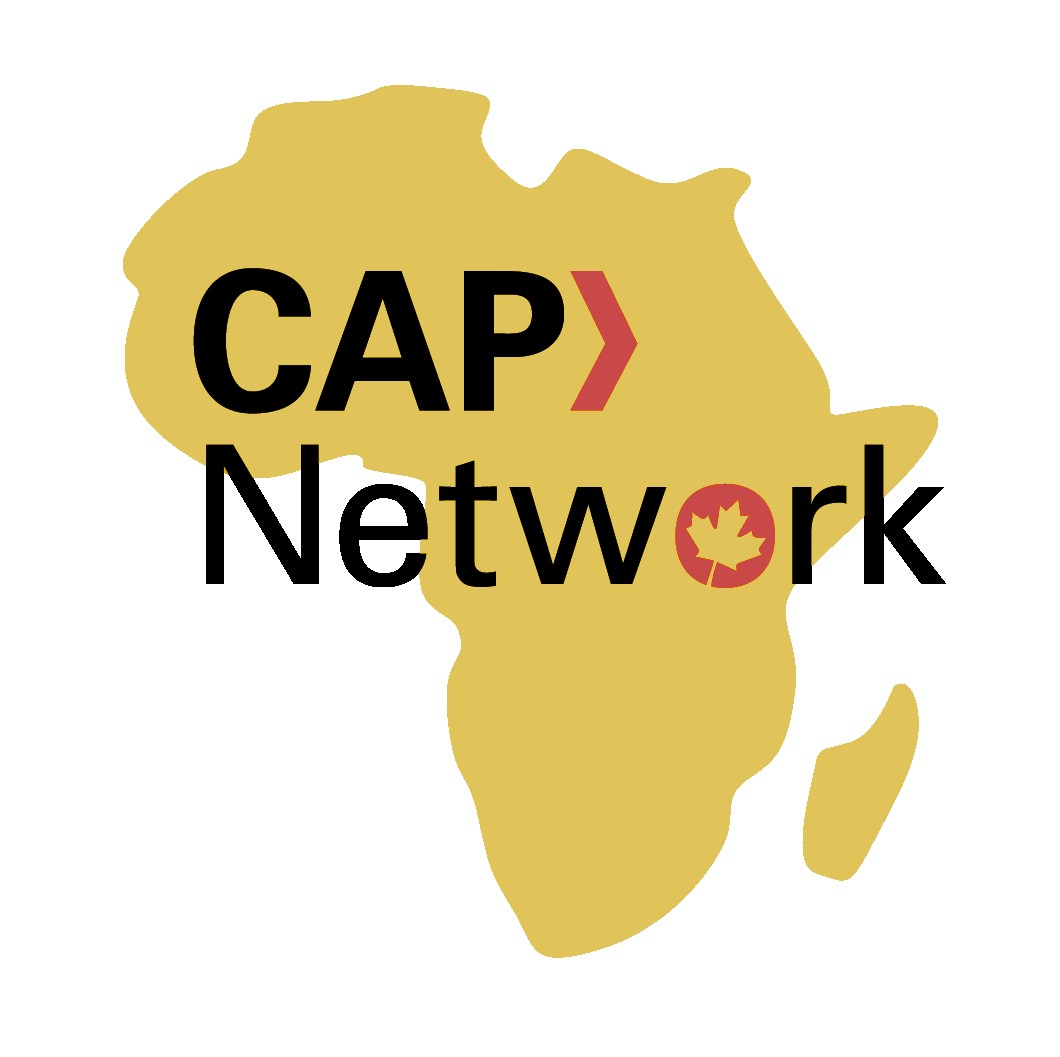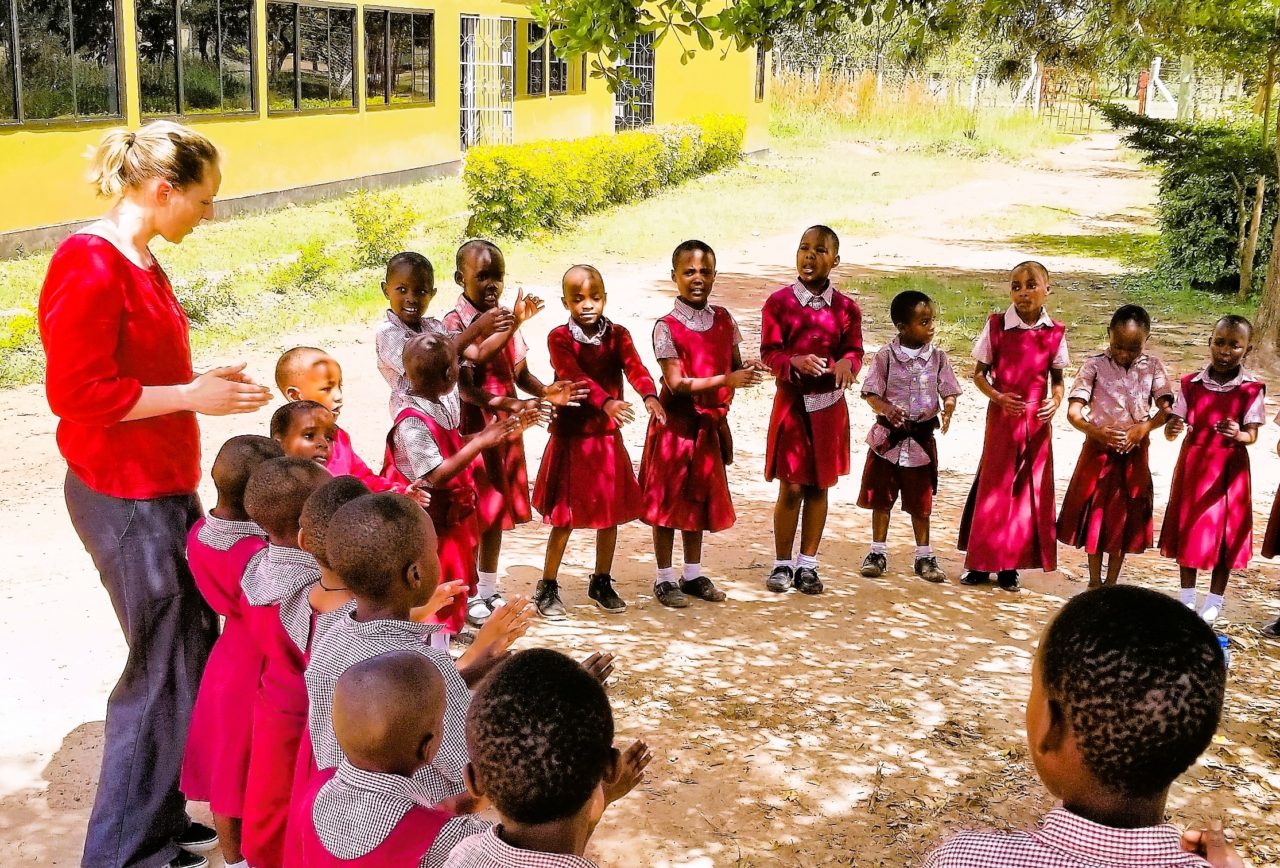 Empowering children and sparking joy through music
Empowering children and sparking joy through music
Life skill and community building for marginalized children in Tanzania
Music is a cornerstone of Tanzanian culture. In Geita, you can hear music blasting from passing minibuses on dusty dirt roads, echoing from boom boxes on passing bicycles, and resonating through open windows as choirs practice for their upcoming services. From weddings to welcome homes parties, song and dance are an essential part of nearly every cultural event in Tanzania. Despite the significance of music, learning to read and play music is a near impossibility for the average citizen. Before Bridging Worlds Through Music began offering music programs in Geita, no such opportunities were available in town. The nearest music shop is three hours away and the cost of musical instruments is well beyond the reach of the average Tanzanian (e.g., GDP per capita in Tanzania is 1375.50 CA$, while a keyboard cost 320 CA$; The World Bank, 2022). Our music programs bring the community together, provide a creative outlet, reprieve from life’s challenges and create a place to share one’s own stories.
Necessity
Community building and life skills development for youth in Geita
Activity
Providing free music education programs to elementary-aged children and college-aged youth in Geita
Countable effort
Every good deed provides 1 hour of music and life skills education to a group of 5 children and youth.
Result
Each year, 200 children experience the joy of making music while developing important life skills to help them plan for their futures.
Systemic effect
Improved mental health and well-being of children and youth, and empowerment through important life skills that support employability
Background
In the Geita region of Tanzania, the vast majority of citizens are subsistence farmers (62.8%; National Bureau of Statistics, 2012) and children are required to help with farming and domestic work. 23.3% of children never attend school while an additional 7.4% drop out before completing Grade 8 (National Bureau of Statistics, 2012). For those that do attend primary school, only 33% will make it to secondary school. This limited access to educational or self-development opportunities restricts the possibilities for their futures. In a community not well resourced for the arts or other skills development opportunities, our music education project provides space for young people to learn more about themselves and their peers, participate in mentorship positions and develop their creative problem-solving and collaboration through music. Our programs help youth see themselves differently, provide them with an employable skill and help them prepare for their futures and break the cycle of poverty. Additionally, in Tanzania, girls and women are still expected to remain in traditional roles (Kuchner, 2013), making it particularly difficult for women and girls to break the cycle of poverty. Bridging Worlds Through Music is an inclusive community-building program where girls and boys, women and men, engage together in their education and develop more respect for one another’s capacities.
The good deed
Bridging Worlds Through Music provides free full-time group music lessons to youth in Geita. Through our programs, we empower young people and help them build essential life skills such as teamwork, cooperation, and creative problem solving. Students learn percussion, guitar, piano, voice and theory in a fun, focused environment that helps kids build self-esteem and encourages them to reach for their goals. A former teacher noted the program “gives students hope [and helps them] feel they are part of something bigger,” fostering enthusiasm for lifelong learning. We are committed to inclusion and gender parity. This means that girls and young women are engaged as both participants and leaders; important in a community where traditional roles can limit opportunities. Our inclusive practices means that all our students experience quality education regardless of their circumstances. Additionally, music is an employable skill, can open the door to opportunities, and helps to build sustainable livelihoods.

About Tanzania
Our GOOD DEED takes place in Geita. Dodoma is the capital of Tanzania (since 1996).
Population of Geita
99,795 (2012),
of Tanzania 59.73 million (2020)
Per capita GDP
Tanzania
1375.5 CA$ (2022)
HDI of Tanzania 0.529
placed 163rd
out of 189 countries
Located in the northwest, near Lake Victoria, Geita is known as the gold mining capital of Tanzania - though most community members there still struggle to overcome poverty.
About the organization and further information

Website
Further information and source
- • The World Bank, April 7, 2022. The World Bank in Tanzania, Washington, DC.
- • Kushner, J., October 29, 2013. Tanzania’s perplexing youth unemployment crisis. The World, United States.
- • National Bureau of Statistics, 2012. 2012 Census. Dar Es Salaam: Tanzania.
- • National Bureau of Statistics, 2011. Tanzania Demographic and Health Survey 2010, NBS and ICF Macro, Dar Es Salaam: Tanzania.
- • Ministry of Community Development Gender and Children, n.d. National strategy for gender development, United Republic of Tanzania.




